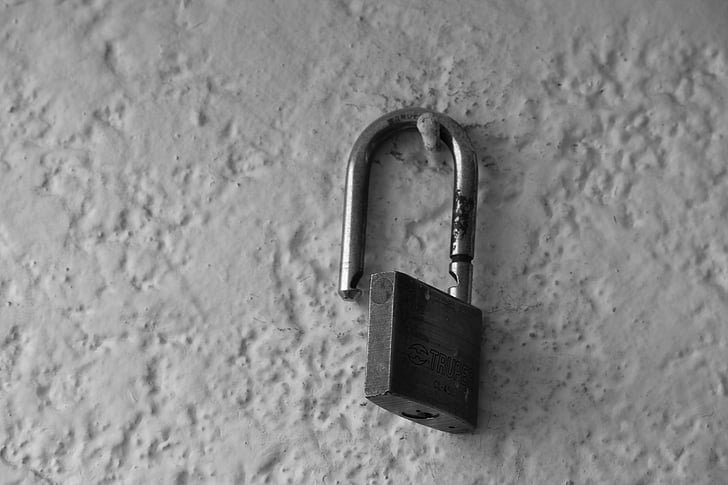In the chaotic symphony of life, stress often takes center stage, playing a cacophony of anxiety and tension that threatens to drown out our sense of serenity. But fear not, for amidst this cacophony lie a collection of harmonious stress management strategies, waiting to be discovered and embraced. In a world where finding balance seems like an unattainable venture, these techniques offer a glimmer of hope, promising to restore equilibrium and allow us to navigate the roads of life with a steady hand and a calm mind. So, let us embark on this captivating journey through the labyrinth of stress, as we unveil the transformative power of stress management strategies, illuminating a path towards tranquility and newfound harmony.
Techniques for Finding Balance: Uncovering the Key Elements of Effective Stress Management Strategies
In today’s fast-paced world, finding balance is crucial for effective stress management. By understanding and mastering a few key elements, you can unlock the secret to a more balanced and fulfilling life. Let’s explore some techniques that can help you find that delicate equilibrium.
The Power of Self-Care
One of the first steps in achieving balance is practicing self-care. This means investing time and energy into activities that nourish and rejuvenate your mind, body, and soul. Consider incorporating the following self-care practices into your routine:
- Regular exercise: Physical activity helps reduce stress and releases endorphins, promoting a sense of well-being.
- Meditation and mindfulness: Taking quiet moments to focus on your breath and embrace the present moment can help you gain clarity and reduce anxiety.
- Quality sleep: Prioritize good sleep hygiene by establishing a consistent bedtime routine and creating a peaceful sleeping environment.
- Engaging hobbies: Pursuing activities that you enjoy and that align with your interests can bring a sense of fulfillment and joy.
The Art of Time Management
Effective time management is another vital aspect of finding balance. By prioritizing tasks and setting boundaries, you can make the most of your time and avoid feeling overwhelmed. Here are some tips to help you manage your time more efficiently:
- Break tasks into smaller steps: Tackle big projects by breaking them down into smaller, manageable tasks to prevent procrastination and increase productivity.
- Create a schedule: Use a planner or digital calendar to keep track of your commitments and create a realistic daily or weekly schedule.
- Set boundaries: Learn to say no to unnecessary commitments and delegate tasks when possible to avoid overloading yourself with responsibilities.
- Prioritize self-reflection: Regularly evaluate your goals and priorities to ensure your time is allocated effectively and aligns with your values.
The Role of Support Systems
Building a strong support system is crucial in maintaining balance and managing stress. Surrounding yourself with positive and supportive individuals can provide encouragement and perspective when you need it most. Consider these elements when cultivating your support system:
- Nurture meaningful relationships: Invest time and effort into building and maintaining relationships with trusted friends, family, or mentors who can offer guidance and emotional support.
- Seek professional help if necessary: Do not hesitate to reach out to therapists or counselors who specialize in stress management or related fields to provide expert assistance when needed.
By implementing these techniques and making them part of your daily routine, you can uncover the key elements that contribute to effective stress management. Remember, balance is a journey, and finding the right equilibrium is an ongoing process.

Unlock Inner Tranquility: Exploring Mindfulness and Meditation as Stress-Relief Tools
In today’s fast-paced world, stress has become an inevitable part of our lives. With endless responsibilities and constant distractions, finding inner tranquility can seem like an impossible feat. But fear not, as there are powerful tools at our disposal that can help us navigate the chaos and achieve a state of peace and harmony within ourselves.
Mindfulness and meditation have emerged as popular practices that not only offer temporary relief from stress but also cultivate long-term resilience and emotional well-being. By diverting our attention to the present moment and embracing it without judgment, mindfulness shifts our focus away from worries and anxieties that plague our minds.
Through simple meditation techniques, we can learn to observe our thoughts and emotions without being consumed by them. It is in these moments of stillness that we begin to unravel the layers of stress and connect with our inner selves. With regular practice, meditation enables us to let go of the constant stream of thoughts, allowing us to relax our mind and body, reduce stress levels, and gain a sense of clarity and tranquility.
- Mindfulness: The art of being fully present in the moment, focusing our attention on the sensations, thoughts, and emotions that arise without judgment or attachment.
- Meditation: A practice that involves training the mind to reach a state of consciousness and clarity by focusing inwardly or on a specific object or mantra.
- Benefits:
- Reduces stress and anxiety.
- Enhances self-awareness and introspection.
- Improves focus, attention, and cognitive skills.
- Promotes emotional balance and resilience.
- Boosts overall well-being and mental health.
Exploring mindfulness and meditation can truly be transformative, leading to a more balanced and fulfilling life. Whether you are new to these practices or looking to deepen your existing understanding, incorporating them into your routine can unlock the doors to inner tranquility and provide you with effective stress-relief tools that will serve you for a lifetime.

Reclaim Your Time: Strategies for Prioritizing Tasks and Enhancing Productivity
Are you constantly feeling overwhelmed by never-ending to-do lists and a lack of time? It’s time to take control of your schedule and maximize your productivity. With these powerful strategies for prioritizing tasks, you’ll be able to accomplish more in less time, leaving you with the freedom to focus on what truly matters to you.
1. Identify Your Top Priorities: Start by determining what tasks are most important to your overall goals and values. Make a list of these priorities and keep them at the forefront of your mind as you plan your day. By aligning your tasks with your long-term objectives, you’ll ensure that you’re focusing on what truly matters.
2. Break It Down: Large projects can seem overwhelming, leading to procrastination and loss of productivity. Combat this by breaking each task into smaller, more manageable steps. Not only will this make progress seem more achievable, but it will also give you a clear roadmap to follow, reducing decision fatigue and improving efficiency.
3. Utilize Time-Blocking: Rather than bouncing between tasks, adopt a time-blocking technique. This involves assigning specific time blocks throughout your day to work on specific tasks. By dedicating uninterrupted time to focus on one task at a time, you’ll eliminate distractions and enhance both the quality and speed of your work.
4. Develop a Routine: Establishing a daily, weekly, or monthly routine can greatly enhance your productivity. A routine provides structure and helps eliminate decision-making fatigue by automating certain tasks. Identify your most productive times of day and allocate them for your most important tasks, making the most of your natural energy levels.
With these strategies in your arsenal, you’ll be well-equipped to take charge of your time and skyrocket your productivity. Remember, it’s not about doing more tasks; it’s about doing the right tasks efficiently and effectively.

Harness the Power of Physical Activity: Fitness and Exercise as Stress-Busting Methods
When stress begins to dominate your life, it’s time to take control and tap into the incredible power of physical activity. Fitness and exercise not only boost your physical health but also serve as remarkable stress-busting methods that can transform your mental well-being. Embrace the wonders of movement and discover how it can help you conquer stress and find a renewed sense of serenity.
Engaging in regular exercise releases endorphins, those magical neurotransmitters that flood your brain with feelings of happiness and contentment. These natural mood-enhancers act as powerful stress relievers, lifting your spirits and rejuvenating your mind. Regardless of the intensity or duration, physical activity stimulates the production of endorphins, allowing you to bid farewell to stress and welcome in a sense of calmness.
Exercise is a time-honored method for diverting your mind’s attention away from stressors. By focusing on your body’s movements, you create a space where worries and anxieties can fade into the background. Whether it’s a brisk walk, an invigorating dance session, or a peaceful yoga practice, your mind becomes engrossed in the present moment, granting you respite from the burdens of everyday life. Embrace this mental escapism, and discover the incredible clarity and tranquility it can bring to your life.
Not only does physical activity improve your mood and provide mental escape, but it also strengthens your body’s resilience to stress. Regular exercise enhances your overall well-being, boosting your immune system, improving sleep quality, and increasing your energy levels. By nourishing your body, you equip it with the tools it needs to face life’s challenges with grace and vitality. Say goodbye to stress-induced fatigue and hello to a more resilient, empowered you.

Rest and Recharge: The Importance of Quality Sleep and Relaxation Techniques in Stress Management
In our hectic and fast-paced lives, it is easy to overlook the importance of rest and relaxation. However, quality sleep and effective relaxation techniques are essential when it comes to managing stress and maintaining overall well-being. The demanding nature of our daily routines can take a toll on both our physical and mental health. That’s why taking the time to prioritize rest and recharge is crucial for a balanced and healthy lifestyle.
One of the key aspects of stress management is ensuring an adequate and restful sleep. **It allows our bodies to replenish and rebuild**, aiding in physical recovery and boosting our immune system. During sleep, our brain consolidates memories, processes information, and regulates emotions, helping us to wake up feeling refreshed and mentally sharp. When we neglect sleep, we not only compromise our physical health but also become more vulnerable to the detrimental effects of stress.
Additionally, incorporating relaxation techniques into our daily routine can significantly alleviate stress levels. **Deep breathing exercises** and **meditation** are powerful tools that promote a sense of calm and tranquility within ourselves. These techniques reduce the production of stress hormones, lower blood pressure, and improve overall mental clarity and focus. **Engaging in hobbies and activities that bring joy and promote relaxation** such as reading, listening to music, or taking a leisurely walk in nature, also help to recharge our batteries and reduce stress levels.
In conclusion, ensuring quality sleep and incorporating relaxation techniques into our daily lives are essential for effective stress management. By valuing rest and taking the time to engage in activities that help us relax, we can enhance our overall well-being and build resilience to the challenges we face. Prioritizing rest and recharge is not a luxury but a necessity that allows us to lead healthier, happier, and more fulfilling lives.
Closing Remarks
As we come to the end of our exploration into stress management strategies, we hope you have found not just information, but a pathway to balance and tranquility amidst life’s storms. Just as a tightrope walker gracefully finds their equilibrium, so too can we navigate the tightrope of our own anxieties and pressures.
Remember, stress is an ever-present companion on this journey called life, but it does not have to be a constant companion. Armed with the techniques and wisdom we have shared, you now possess the tools to tame the thunder within and forge a harmonious existence.
Finding balance may seem like an elusive quest, but it is a quest worth embarking on. Take the time to breathe deeply, to quiet your mind, and to reconnect with what truly matters. Embrace the gentle power of meditation, the revitalizing energy of exercise, and the soothing embrace of a supportive community.
In a world that often pushes us to our limits, it is vital to remember that self-care is not selfish; it is self-preservation. Prioritize yourself, not out of arrogance but out of a deep understanding that your own well-being is the foundation upon which everything else rests.
We hope our exploration of stress management strategies has provided you with a roadmap to serenity, a compass pointing towards inner peace. Remember that balance is not a fixed destination, but an ever-evolving journey. Be gentle with yourself, for life’s demands may ebb and flow, but your commitment to finding equilibrium should remain steadfast.
May these techniques become second nature to you, woven into the fabric of your daily routine. And as you encounter the inevitable challenges, may you face them with a newfound resilience, knowing that you are armed with the strategies necessary to navigate even the stormiest seas.
So, dear reader, go forth and conquer stress with grace and determination. Embrace a life where balance is not an unattainable dream but a cherished reality. And may the harmony you find within spread its soothing waves to the world around you, creating a ripple effect of calm and peace.
In the end, stress management is not just a means to an end, but a transformative journey towards a life well-lived. So take that first step, and let the symphony of balance guide you towards a future filled with tranquility.




